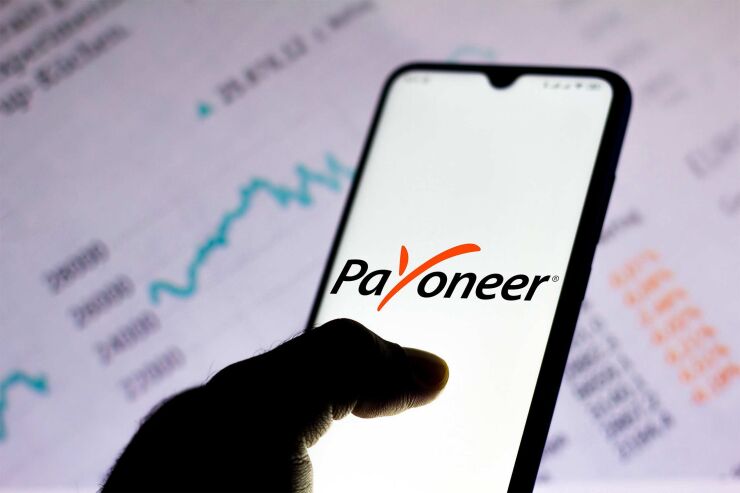In the space of a few weeks, Payoneer announced it would go public through a special purpose acquisition firm, then collaborated with Mastercard on a suite of services for B2B payments.
These initiatives come amid a flurry of fundraising by payment technology companies, and a pandemic-driven acceleration to automate supply chain finance.
"Speed is alway nice to have," said Charles Rosenblatt, Payoneer's chief strategy officer. "But there are a lot of amazing opportunities out there and we're looking forward to being able to share that" with investors.
Traditional IPOs are more restrictive than special purpose acquisition companies, which are designed to take less time due to less documentation involved before the listing. Companies going through the SPAC process can also

Payoneer reached a $3.3 billion deal in February with FTAC Olympus Acquisition Corp., a SPAC that will raise funds through its own IPO then acquire Payoneer to take it public — a process that's expected to be complete sometime during the first half of the year.
Payoneer has made this deal as a growing number of payment technology companies raise vast sums in the VC market or by going public.
"SPACs don’t have the best reputation out there but I know they are having a moment," said Gilles Ubaghs, a senior analyst at Aite Group. "My suspicion is SPACs will be more interested in fintechs, than many fintechs will be interested in SPACs, particularly given the most recent news about Stripe."
Other payment forms have grown organically, including like
"The SPAC model allows us to talk about what we're doing in the card business, for example," said Rosenblatt. "The IPO process doesn't allow us to do that."
Payoneer will have more than $500 million in cash when its deal with FTAC closes. "We'll have working capital and we're looking at all sorts of places from an M&A perspective," Rosenblatt said.
Payoneer's collaboration with
The partnership comes as the pandemic pushes businesses to automate B2B transactions after years of lagging behind other payment categories in embracing automation. Payoneer serves about 5 million small businesses globally, and the Mastercard link should improve liquidity for online marketing, Rosenblatt said.
"A lot of these small businesses are sellers on Amazon, Walmart, Wish and Lazada," Rosenblatt said. "And a big piece of that is paying for those ads."
The virtual card can be used to make recurring payments for e-commerce advertising, enabling small businesses to divide incoming consumer payments between expenses for supplies, internal costs and revenue to pay for new advertising through the Payoneer account. It's also an attempt by Payoneer to keep more of a business' activity with Payoneer rather than using bank accounts to execute some transactions. "We've always had a card at Payoneer but with Mastercard we're hoping to get up to 75% of the total transactions from our small businesses," Rosenblatt said.





